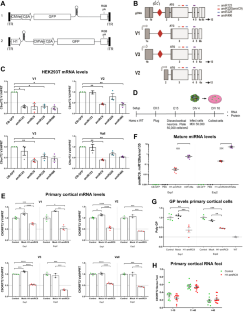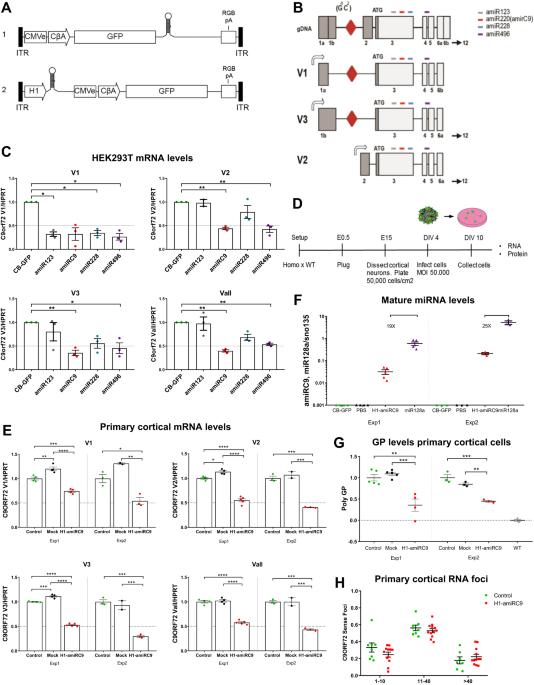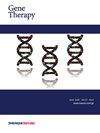Artificial microRNA suppresses C9ORF72 variants and decreases toxic dipeptide repeat proteins in vivo
IF 4.6
3区 医学
Q1 BIOCHEMISTRY & MOLECULAR BIOLOGY
引用次数: 0
Abstract
Amyotrophic lateral sclerosis (ALS) is a fatal neurodegenerative disease that affects motor neurons, causing progressive muscle weakness and respiratory failure. The presence of an expanded hexanucleotide repeat in chromosome 9 open reading frame 72 (C9ORF72) is the most frequent mutation causing familial ALS and frontotemporal dementia (FTD). To determine if suppressing expression of C9ORF72 gene products can reduce toxicity, we designed a set of artificial microRNAs (amiRNA) targeting the human C9ORF72 gene. Here we report that an AAV9-mediated amiRNA significantly suppresses expression of the C9ORF72 mRNA, protein, and toxic dipeptide repeat proteins generated by the expanded repeat in the brain and spinal cord of C9ORF72 transgenic mice.


人工微小RNA在体内抑制C9ORF72变体并降低毒性二肽重复蛋白。
肌萎缩侧索硬化症(ALS)是一种致命的神经退行性疾病,影响运动神经元,导致进行性肌无力和呼吸衰竭。9号染色体开放阅读框72(C9ORF72)中扩增的六核苷酸重复序列的存在是导致家族性ALS和额颞叶痴呆(FTD)的最常见突变。为了确定抑制C9ORF72基因产物的表达是否可以降低毒性,我们设计了一组靶向人类C9ORF71基因的人工微小RNA(amiRNA)。在此,我们报道了AAV9介导的amiRNA显著抑制C9ORF72转基因小鼠大脑和脊髓中由扩增重复产生的C9ORF72mRNA、蛋白质和毒性二肽重复蛋白的表达。
本文章由计算机程序翻译,如有差异,请以英文原文为准。
求助全文
约1分钟内获得全文
求助全文
来源期刊

Gene Therapy
医学-生化与分子生物学
CiteScore
9.70
自引率
2.00%
发文量
67
审稿时长
4-8 weeks
期刊介绍:
Gene Therapy covers both the research and clinical applications of novel therapeutic techniques based on a genetic component. Over the last few decades, significant advances in technologies ranging from identifying novel genetic targets that cause disease through to clinical studies, which show therapeutic benefit, have elevated this multidisciplinary field to the forefront of modern medicine.
 求助内容:
求助内容: 应助结果提醒方式:
应助结果提醒方式:


